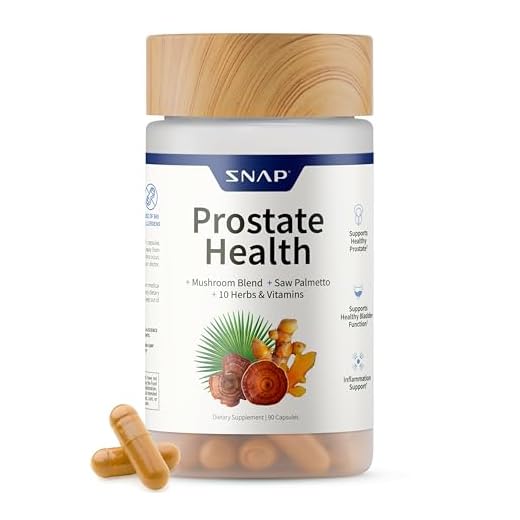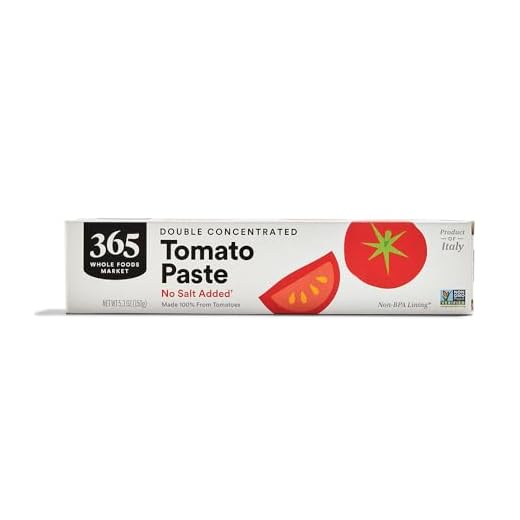







Multivitamins with lycopene can markedly bolster your prostate health by supplying essential antioxidants. Lycopene, primarily found in tomatoes, combats oxidative stress linked to prostate cancer. By incorporating lycopene into your diet, you may reduce your risk of prostate cancer by 20-40%. Multivitamins enhance the absorption of lycopene through dietary fats, ensuring you get adequate levels. They also fill nutrient gaps, supporting overall well-being. While research on direct benefits continues, the antioxidants in multivitamins help promote healthier prostate function. Exploring these findings further can provide deeper insights into how lycopene and these vitamins work together for your health.
Key Takeaways
- Multivitamins with lycopene provide concentrated sources of nutrients that support prostate health and combat oxidative stress linked to prostate cancer.
- Lycopene, an antioxidant found in multivitamins, may reduce prostate cancer risk by protecting cells from oxidative damage.
- The absorption of lycopene is enhanced when taken with dietary fats, making multivitamins an effective delivery method for this nutrient.
- Regular intake of lycopene through multivitamins, alongside a healthy diet, may improve overall antioxidant defenses in the body.
- Multivitamins can help fill dietary gaps, ensuring adequate nutrient intake necessary for maintaining prostate health and preventing disease.
Overview of Prostate Health
Prostate health is a significant aspect of men's overall well-being, especially considering that prostate cancer ranks as the second most diagnosed cancer among men worldwide. It's essential to recognize the considerable prevalence rates of this disease, particularly in developed nations. Regular screening and monitoring of prostate-specific antigen (PSA) levels are important for early detection. PSA levels exceeding 4 ng/mL can indicate potential health concerns, prompting further evaluation.
A healthy diet plays a key role in maintaining prostate health. Incorporating lycopene-rich foods, such as tomatoes, along with a variety of fruits and vegetables, may help reduce the risk of prostate cancer. Lifestyle factors, including maintaining a healthy weight and engaging in regular physical activity, are linked to better health outcomes related to prostate health.
Additionally, complementary medicine approaches, such as multivitamins containing lycopene, are gaining interest for their potential benefits. Although more research is needed to confirm their efficacy, these supplements may support prostate health in conjunction with a balanced diet and active lifestyle. Focusing on these aspects can empower you to take charge of your prostate health and minimize risks associated with prostate cancer.
Importance of Nutrients
Maintaining ideal nutrient intake plays an essential role in supporting overall health, particularly when it comes to prostate health. Nutrients like lycopene, a powerful antioxidant, help combat oxidative stress linked to prostate cancer development. Additionally, how vitamin D influences immune responses suggests that adequate vitamin D levels can further enhance the body's ability to fight off infections, which is crucial for overall health. By incorporating multivitamins into your routine, you can enhance your antioxidant defenses, ensuring you receive adequate amounts of this crucial nutrient.
Lycopene is best absorbed from processed tomato products, and multivitamins can provide a concentrated source, potentially increasing bioavailability compared to raw tomatoes. Additionally, essential vitamins and minerals found in multivitamins, such as vitamin D and selenium, work synergistically to support prostate health and boost immune function.
Research indicates that a diet rich in antioxidants, including lycopene, may lower the risk of prostate cancer. For men who may not consume enough fruits and vegetables, multivitamins serve as a convenient way to fill dietary gaps, offering a broader spectrum of essential nutrients. By prioritizing nutrient absorption through multivitamins, you can take proactive steps toward maintaining prostate health and overall well-being. This approach not only supports your body's defenses but also promotes a balanced nutrient intake crucial for long-term health.
What Is Lycopene?
Lycopene is a powerful antioxidant found mainly in tomatoes, known for its vibrant red color and potential health benefits. This carotenoid pigment has a molecular formula of C40H56 and features 11 conjugated double bonds, which contribute to its strong antioxidant properties. Notably, processed tomato products, like tomato paste, contain high concentrations of lycopene—up to 55.45 mg per 100 grams—making them a rich dietary source.
Epidemiological studies suggest that higher lycopene intake may be associated with a reduced risk of prostate cancer. While these findings are promising, clinical evidence remains inconclusive, and more research is needed to establish a definitive link. Nevertheless, lycopene's ability to quench reactive oxygen species is vital, as it helps protect cellular structures from oxidative damage.
When consumed, the human body absorbs lycopene at rates between 10% to 30%, and dietary lipids can enhance its bioavailability during digestion. By incorporating lycopene-rich foods or supplements into your diet, you may support your overall health and potentially lower the risk of certain conditions, including prostate cancer.
Lycopene Sources and Bioavailability
Tomatoes and their various forms are among the richest sources of lycopene, a carotenoid linked to several health benefits. Processed products like tomato paste contain as much as 55.45 mg of lycopene per 100 g, considerably more than the 4-10 mg found in fresh tomatoes. Other dietary sources include watermelon, pink grapefruit, guava, and apricots, with watermelon providing about 4 mg of lycopene per 100 g.
The bioavailability of lycopene is essential for its effectiveness regarding prostate health. Cooking tomatoes enhances this bioavailability by breaking down cell walls, making lycopene more accessible for absorption compared to raw tomatoes. Furthermore, consuming lycopene with dietary fats increases its absorption, as lipid micelles in the small intestine facilitate this process, with uptake rates ranging from 10% to 30%.
Epidemiological studies suggest that higher dietary intake of lycopene correlates with a reduced risk of prostate cancer. This emphasizes the importance of including lycopene-rich foods, such as cooked tomatoes and tomato paste, in your diet for potential prostate health benefits. By prioritizing these sources, you're taking a proactive step towards supporting your overall well-being.
Antioxidant Properties of Lycopene
Incorporating lycopene-rich foods into your diet not only supports prostate health but also harnesses the powerful antioxidant properties of this carotenoid. Lycopene is a potent antioxidant that effectively quenches singlet oxygen and protects your cells from oxidative stress. Its molecular structure, featuring 11 conjugated double bonds, enhances its antioxidant capacity compared to other carotenoids.
Research shows that lycopene can upregulate antioxidant response elements (ARE), boosting cellular antioxidant mechanisms. This action may contribute to a reduced risk of cancer development, including prostate cancer. Consuming dietary sources of lycopene, particularly processed tomato products, increases its bioavailability, leading to improved antioxidant effects.
Regular intake of lycopene can help lower oxidative damage to DNA, proteins, and lipids, further promoting cellular health. By prioritizing lycopene-rich foods, you can take proactive steps to combat oxidative stress and support your overall well-being. Incorporating these foods into your meals not only enhances your diet but may also play a role in reducing the risk of prostate cancer. Emphasizing lycopene as part of a balanced diet could be a key strategy for maintaining prostate health.
Lycopene and Prostate Cancer Risk
How might the inclusion of lycopene in your diet influence your prostate cancer risk? Lycopene, a powerful antioxidant mainly found in tomato-rich foods, has been linked to a reduced risk of prostate cancer. Epidemiological studies suggest that higher dietary lycopene intake can correlate with a 20-40% reduction in prostate cancer risk among men. This is significant, as incorporating lycopene-rich foods into your daily meals may offer substantial benefits.
Clinical trials have also explored the potential of lycopene as a dietary supplement for cancer prevention. While results from animal models have shown that lycopene can suppress the growth of prostate cancer cells, human studies remain inconclusive. Lycopene works by enhancing your antioxidant defenses, inhibiting cancer cell proliferation, and inducing apoptosis in prostate cells. These mechanisms suggest a protective role against prostate cancer.
However, despite the promising evidence surrounding lycopene and prostate cancer risk, the clinical data is still limited. Continued research is essential to confirm its efficacy in cancer prevention. Until then, focusing on a diet rich in lycopene may be a proactive step in managing your prostate health.
Role of Multivitamins
Many men find that including multivitamins in their daily routine can be an effective strategy for supporting prostate health. Multivitamins containing lycopene provide a convenient way to enhance your dietary intake, especially since lycopene from food sources is better absorbed with dietary fats often found in these formulations. In addition, multivitamins can help fill nutrient gaps in poor diets, ensuring that essential vitamins and minerals are included in your regimen, which is vital for overall health and well-being the role of multivitamins in diet. As an antioxidant, lycopene has been linked to potential protective effects against prostate cancer by reducing oxidative stress and promoting apoptosis in cancer cells.
Research indicates that men who consume multivitamins with lycopene may experience a lower risk of prostate cancer recurrence. This highlights the importance of incorporating lycopene into your daily supplementation. Moreover, multivitamins typically include various nutrients that work synergistically, potentially offering broader health benefits beyond isolated lycopene.
Aligning your multivitamin intake with dietary recommendations that advocate for a diet rich in fruits and vegetables could contribute greatly to reducing the risk of prostate-related issues. By integrating multivitamins with lycopene into your routine, you may be taking a proactive step toward better prostate health and overall well-being.
Clinical Evidence on Lycopene
Evaluating the clinical evidence surrounding lycopene reveals a complex picture regarding its role in prostate health. While some epidemiological evidence suggests an inverse relationship between lycopene intake and prostate cancer risk, clinical studies have not conclusively demonstrated that lycopene supplementation considerably reduces prostate cancer incidence or mortality. For instance, a randomized controlled trial showed a 10% incidence of prostate cancer among those receiving lycopene, compared to 30% in the control group, but this difference was not statistically significant.
Moreover, meta-analyses indicate no substantial differences in PSA levels between lycopene and control groups, highlighting the need for further investigation. The absorption of lycopene appears to be enhanced when consumed in processed tomato products, which might improve its bioavailability and potential efficacy. However, only one high-quality study with a low risk of bias was found, underscoring the necessity for more rigorous research to validate lycopene's clinical benefits as a preventive measure for prostate health. Consequently, while lycopene shows promise, the current clinical evidence does not firmly support its role in preventing prostate cancer through nutritional supplementation.
Dietary Recommendations
Incorporating lycopene-rich foods into your diet is essential for supporting prostate health. To achieve the recommended intake of lycopene, aim for about 6-15 mg per day, primarily from dietary sources. Processed tomato products, such as tomato paste, are particularly effective, boasting up to 55.45 mg of lycopene per 100 grams, making them a smart choice for enhancing your intake.
A balanced diet rich in fruits and vegetables is vital, especially those high in carotenoids like lycopene. Research suggests that a diet abundant in these foods is linked to a lower risk of prostate cancer. While multivitamins may offer some benefits, obtaining lycopene from whole food sources is recommended for better health outcomes. Whole foods provide synergistic effects with other phytochemicals, maximizing the potential benefits for your prostate health.
Incorporating a variety of lycopene-rich foods, including processed tomato products and a colorful array of fruits and vegetables, will help you maintain a nutritious diet that supports overall well-being and prostate health. Prioritize these dietary sources to harness the full potential of lycopene and its protective properties.
Future Research Directions
To advance our understanding of the role of lycopene in prostate health, future research should prioritize larger, randomized controlled trials that assess the efficacy of multivitamins containing lycopene in reducing prostate cancer incidence and mortality rates. These studies will provide vital data on how effective lycopene is as a preventive measure.
Additionally, investigating the synergistic effects of lycopene with other dietary antioxidants found in multivitamins could illuminate their combined benefits for prostate health. It's also important to explore the ideal dosage and bioavailability of lycopene from multivitamins compared to food sources, helping to identify the most effective methods for prostate cancer prevention.
Moreover, research should evaluate the long-term safety and potential side effects associated with high-dose lycopene supplementation in prostate cancer patients. Understanding these aspects will guarantee that any recommendations are safe and effective. Finally, future investigations could analyze the mechanisms by which lycopene and other components in multivitamins influence prostate cell proliferation, apoptosis, and overall tumor development, offering deeper insights into how these nutrients work together to support prostate health.
Conclusion
Incorporating multivitamins with lycopene into your daily routine can be a proactive step towards maintaining prostate health. Just as ancient warriors relied on their armor for protection, you can arm yourself with the powerful antioxidant properties of lycopene. With emerging clinical evidence supporting its benefits, you might find that these nutrients play a vital role in your overall health strategy. Staying informed and proactive today can pave the way for a healthier tomorrow.






